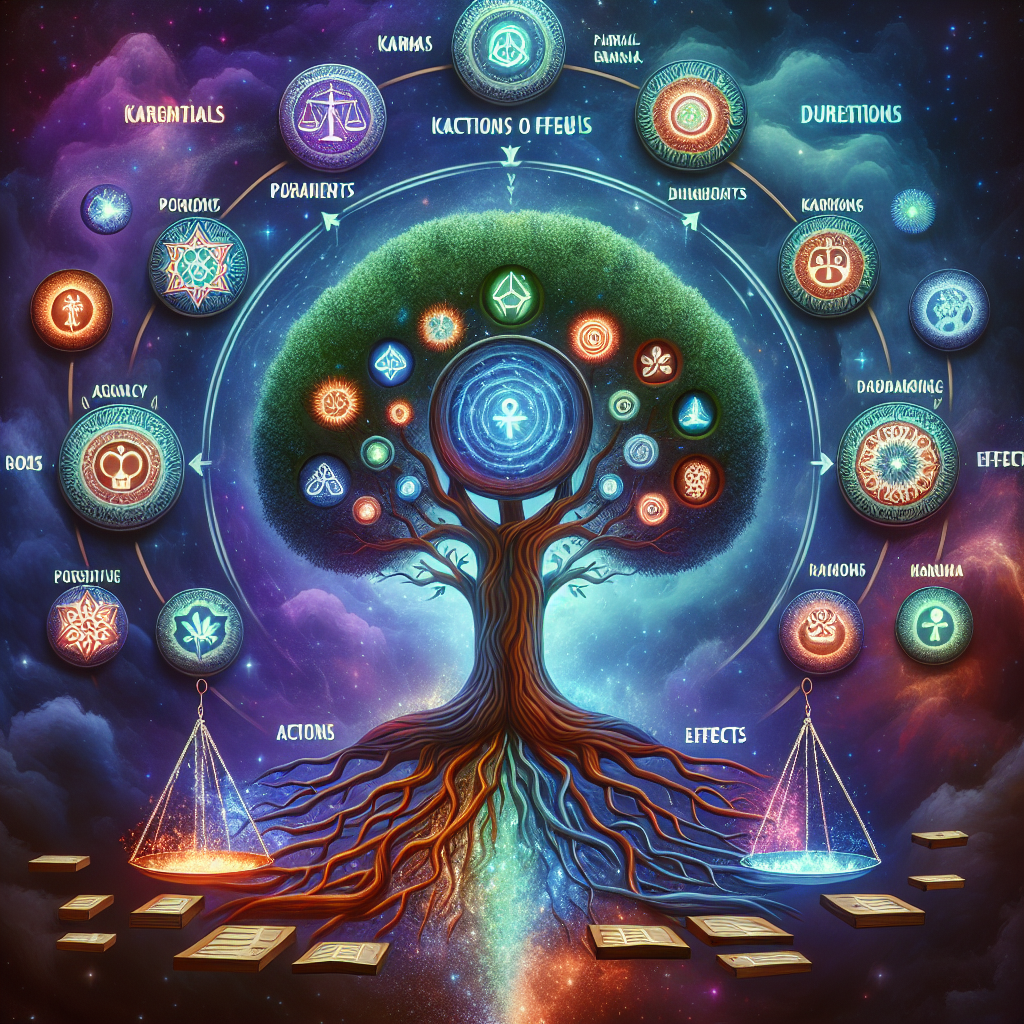The relationship between parents and their children is one of the most profound dynamic forces in human existence. This bond shapes not only individual destinies but also the fabric of society at large. In exploring the concepts of karma and kinship, we delve into how parental influence molds children’s lives, behaviors, and worldviews.
The Concept of Karma
Karma, a term rooted in ancient Eastern philosophies, particularly in Hinduism and Buddhism, refers to the principle of cause and effect regarding one’s actions. In essence, every action produces consequences, which can carry over into future lives—or, in a more immediate sense, impact the lives of those around us.
When applied to parenting, karma suggests that a parent’s actions, values, and behaviors significantly influence their child’s development and future. This influence can manifest in both positive and negative ways, creating a cycle that not only affects the parent-child relationship but also the wider community.
Types of Parental Influence
Parental influence can be categorized into several domains, including emotional, behavioral, and social influences. Each of these aspects contributes to a child’s overall development and experiences.
Emotional Influence
Emotional intelligence starts at home. Parents who model healthy emotional regulation and expression foster similar skills in their children. These children typically:
- Develop stronger emotional literacy, enabling them to understand their own feelings and those of others.
- Exhibit empathy and kindness, leading to healthier interpersonal relationships.
- Possess enhanced resilience to life’s challenges.
Behavioral Influence
Behavioral patterns established during childhood often persist into adulthood. Parenting styles can range from authoritative to permissive, affecting how children perceive rules and consequences. For instance, children raised in structured environments with clear expectations are likely to develop self-discipline and responsibility.
Social Influence
Parents are a child’s first socializing agents. They introduce the child to social norms, values, and cultural practices. The manner in which parents approach social situations—how they treat others, resolve conflicts, and express values—deeply impacts a child’s perception of social interaction.
The Role of Kinship in Parenting
Kinship refers to the social bonds and relationships that connect individuals within a family or group. In many cultures, these ties extend beyond immediate family to include extended relatives, friends, and community members. This broader support network plays a critical role in parenting and child development.
Cultural Influences on Parenting
Different cultures place varying degrees of emphasis on familial connections and responsibilities. In collectivist societies, for instance, the welfare of the family unit takes precedence over the individual, influencing parenting practices significantly.
- Extended Family Involvement: In many cultures, grandparents and extended family members often help raise children, providing additional support and resources.
- Community Engagement: Communities may share collective responsibility for childrearing, leading to a broader understanding of kinship that enhances children’s development.
- Value System Transmission: Cultural values are often transmitted through familial lines, ensuring that traditions, rituals, and moral frameworks are preserved.
The Impact of Globalization
As globalization shapes cultural exchanges, parenting styles and kinship dynamics evolve. The introduction of diverse cultural paradigms provides new frameworks for understanding child development but can also create conflicts with traditional practices.
The Intersection of Karma and Kinship
The interaction between karma and kinship underscores the cyclical nature of influence within families. Parents not only impart their values and experiences to their children but also bear the impact of their parenting choices. This interconnectedness highlights the importance of mindfulness in parenting.
Mindful Parenting
Mindful parenting involves being fully present in interactions with children. It fosters awareness of one’s emotions and reactions, helping parents guide their children more effectively. Here are some strategies for mindful parenting:
- Active Listening: Paying attention to children’s words and emotions strengthens the parent-child bond.
- Reflective Practice: Regular self-reflection can help parents assess their own influences on their children.
- Emotional Availability: Being open to discussions about emotions allows children to express themselves freely.
Breaking Old Cycles
Understanding the karma-kinship connection can also empower individuals to break negative patterns inherited from previous generations. Many people recognize harmful behaviors or beliefs that they wish to change in their own parenting practices. This awareness is the first step in creating a healthier, more supportive environment for the next generation.
Conclusion
In sum, the relationship between karma, kinship, and parenting is intricate and profound. The legacy of parental influence shapes children’s emotional intelligence, behavioral patterns, and social perceptions, creating a cycle that can perpetuate both positive and negative traits.
In approaching parenting with a keen understanding of these dynamics, parents can cultivate a nurturing environment that not only supports their children in becoming well-adjusted individuals but also fosters a sense of community and belonging. Ultimately, through mindful, intentional actions, parents carry the potential to positively influence the lives of their children, thereby creating a virtuous cycle of well-being and growth that manifests in the wider world.
FAQs
What is the influence of a parent’s emotional state on a child’s development?
A parent’s emotional state significantly impacts a child’s emotional intelligence, sense of security, and coping mechanisms. A stable emotional environment fosters resilience and empathy in children.
How can parents break negative patterns from their own upbringing?
Awareness is key. By acknowledging harmful patterns, parents can consciously choose different behaviors, seek therapy, or utilize new parenting techniques to break the cycle.
What role does cultural background play in parenting styles?
Cultural background influences values, expectations, and child-rearing strategies. For instance, collectivist cultures may prioritize family unity and reliance on extended family, whereas individualistic cultures may emphasize independence and self-expression.
Can mindful parenting really have a long-term effect on children?
Yes, mindful parenting fosters emotional connections, improves communication, and enhances emotional regulation. These skills are foundational for children’s long-term success and mental health.
How can extended family impact a child’s upbringing?
Extended family provides additional support, diverse perspectives, and a broader network of love and accountability, which can strengthen a child’s emotional and social development.
, It seems like you might be looking for a prompt or inspiration for a writing task. Could you please provide a bit more detail on what kind of prompt you’re interested in? For example, are you looking for a creative writing prompt, a topic for an essay, or something else?, #Karma #Kinship #Understanding #Parental #Influence #Childrens #Lives, #Karma #Kinship #Understanding #Parental #Influence #Childrens #Lives, 1734048493, karma-and-kinship-understanding-parental-influence-on-childrens-lives





